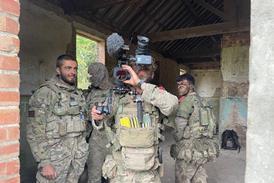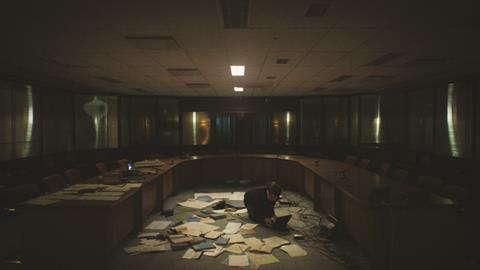‘We tell what we know for sure - through the eyes of survivors, relatives of the victims and the investigators’
Distributor Beta Film
Producers Fisher King; Panache Film; Amrion Oü; Kärnfilm
Length 8 x 60 minutes
Broadcasters TV4 and C More (Sweden); MTV (Finland); ProSieben (Germany)
The catastrophic sinking of the MS Estonia in 1994, which killed more than 850 people, remains an open wound in Sweden and the Baltics – and now this cold case has been reopened in a major European co-commission.
The €15m (£13.1m) eight-part drama charts the fate of the cruise ferry, which was crossing the Baltic Sea en route from the Estonian capital Tallinn to Stockholm in Sweden when it sank in what was the deadliest maritime disaster involving a European ship since the Titanic. Only 138 people survived.
A four-year enquiry by the Joint Accident Investigation Committee (JAIC), established by Sweden, Estonia and Finland, failed to find anyone accountable and speculation around the sinking remains today.
“That the investigation never really found out exactly what happened means the Estonia remains a traumatic event for the Swedish people,” says Justus Riesenkampff, executive chairman of Beta Nordic Studios and executive vice-president of Nordics and Benelux distribution at Beta Film.
“The investigation was a power play between these countries and it involved many conflicts of interest.”
“There’s been a lot of speculation about what happened so our approach is to adhere very closely to the facts”
There have been other documentaries about the incident, notably a five-part Discovery+ series in 2020 that claimed to uncover new evidence. But the approach taken by Finnish producer Fisher King is modelled on that of Emmy- and Bafta-winning drama Chernobyl.
“There’s been a lot of speculation about what happened so our approach is to adhere very closely to the facts,” says Riesenkampff. “We tell what we know for sure, and we do that through the eyes of survivors and the relatives of victims, plus the investigation team.”
Showrunner Miikko Oikkonen (Bordertown; Helsinki Syndrome), who co-wrote the series with Olli Suitiala and Tuomas Hakola, draws heavily on hundreds of testimonies from the investigation, which were recently unclassified. They give a detailed insight into what happened inside the ship, as well as how people were feeling as the ship went down.
The narrative is framed by the investigation, following the perspectives of different groups, such as rescue divers and survivors. “The show is universal in the sense that by seeing the many sides of the catastrophe, we can better understand our need to search for different kinds of answers when tragedies like this occur,” says Riesenkampff.
Matti Halonen produced the series with Johannes Lassila at Beta Film-owned Fisher King. Swedish firm Kärnfilm, Panache Production Belgium and Estonian indie Amrion Oü were also involved. Panache assisted with the shoot at Lites Studios, Vilvoorde, which operates the largest water stage in Europe.
It is directed by Swedish director Måns Månsson (Chernobyl) and Finnish director Juuso Syrjä (Bordertown), with Chernobyl’s JP Passi serving as cinematographer.
The cast is driven by Pelle Heikkilä, one of Finland’s biggest stars.
The series was ordered by Telia-owned broadcasters TV4 in Sweden and MTV3 in Finland, with the participation of the Nordic Film and TV Fund. Beta has made a “significant” pre-sale to Germany’s ProSieben and the title has been selected to premiere at TIFF.
International Scripted

Davey & Jonesie’s Locker heads up an eclectic array of global dramas and comedies including Bargain, Estonia, Strife and Obituary
- 1
- 2
- 3
- 4
- 5
 Currently
reading
Currently
reading
Hot Picks: Estonia
- 7
- 8
- 9
- 10
- 11



















































No comments yet